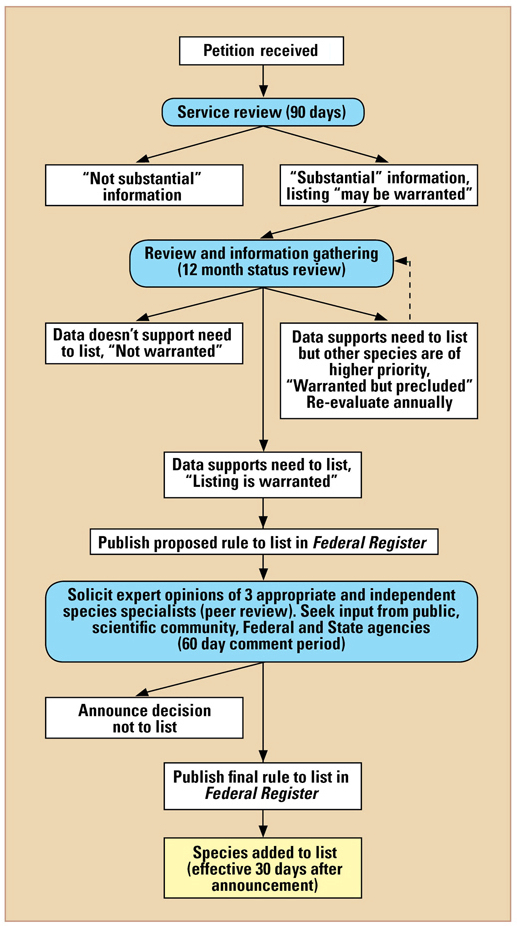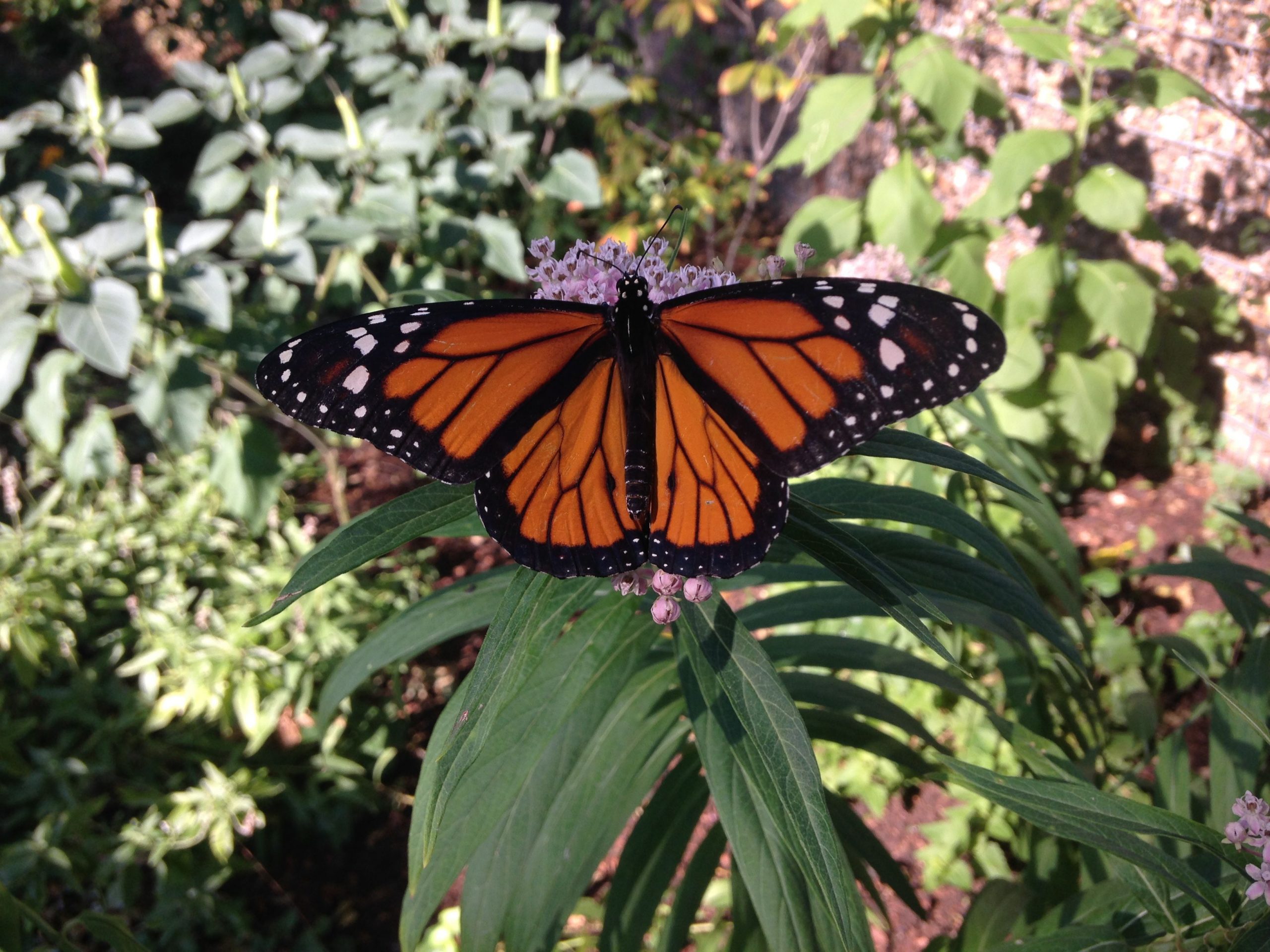A Washington DC Court yesterday awarded the US Fish and Wildlife Service three more years to evaluate whether or not the Monarch butterfly should be listed as “threatened” under the Endangered Species Act in a settlement between the government agency and the Center for Food Safety (CFS) and the Center for Biological Diversity (CBD).
The settlement also called for reimbursement of reasonable attorneys’ fees for the two environmental groups who initiated the lawsuit.
In August of 2014, CFS, CBD, the Xerces Society for Invertebrate Conservation, and Dr. Lincoln Brower petitioned the Service to list the Monarch butterfly as a “threatened.” On Dec. 31, 2014, USFWS published a 90-day finding that listing the Monarch might be warranted, and initiated a status review of the species. The Service then failed to rule on the petition by the statutory 12-month deadline.

The complex, convoluted ESA listing process: we are still caught in the second blue bubble from the top. Courtesy graphic
As a result, in March 2016, CBD and CSF filed a complaint against the Service. Yesterday’s settlement is the Court’s answer to that complaint.
The CBD saw the three-year extension as a positive development.
“In the big picture of slow-cogged bureaucracy, a wait of three years is, relatively speaking, a good outcome,” said Tierra Curry, senior scientist for CBD, adding that many species have had to wait decades for a protection decision.

A freak ice and wind storm blew through the Preserve in March, just as Monarchs were taking flight on their journey north. Photo by Dr. Isabel Ramíro
Curry cited threats to the Monarch: milkweed loss, logging in Mexico, the proposed mine in the Monarch Biosphere Reserve, and high mortality and habitat damage caused by a freak winter storm in March that swept through the reserve just as many Monarchs were taking flight on their journey north.
“I would like to see them gain protection sooner rather than later,” she said. Read the CBD’s press release.
USFWS viewed the settlement as a pragmatic move.
“The settlement provides the least costly alternative to a court case the Service would have had no grounds to contest,” read a statement issued by USFWS spokesperson. “It commits the Service to submit to the Federal Register a 12-month finding for the Monarch butterfly by June 30, 2019, thereby providing a realistic timeframe for the Service to evaluate carefully whether this species warrants protection under the ESA.”
The USFWS statement also noted that the settlement “does not predetermine the Service’s decision, which must be based solely on what the best available science prescribes.”
Related posts:
-
- Scientists try to assess damage after freak Mexican freeze
- Coming soon? Grupo Mexico copper mine in heart of Monarch butterfly roosting sites?
- Good news! Monarch butterfly population triples
- NAFTA Leaders, Monsanto: Let’s Save the Monarch Butterfly Migration
- Will Obama talk Monarch Butterfly Migration with Leaders of Mexico and Canada?
- First Lady Michelle Obama plants first pollinator garden at White House
- Monarch butterflies: the Panda Bears of Climate Change
- Endangered Species Act Wrong Tool for the Job of Monarch Butterfly Conservation
- Monarch Butterfly Inches Toward “Threatened” Status Under Endangered Species Act
Like what you’re reading? Follow butterfly and native plant news at the Texas Butterfly Ranch. Sign up for email delivery, like us on Facebook, or follow us on Twitter, @monikam


So in other words. lets put the decision off for another day. What a shame. If they were serious about these butterflies, they would err on the side of caution. Thanks for the post.
It doesn’t matter how long they take. The only thing that matters is the change they need to make they won’t. They need to stop poisoning our food and the Monarchs. When I was a kid back in the 60’s we bought our ears of corn from a farmer who sold it from his truck. It didn’t bother us if we found a worm it was part of life. Now days they act like it will kill them to see a bug. Grow up Americans and farmers need to go back to farming without the round up. Round up needs to go.
I don’t believe the monarch migration is a fragile phenomenon that is vulnerable to extinction given the fact that it spread across the temperate zone latitudes of the world in the late 1800’s starting with just handfuls of founder butterflies that were inadvertently transported across the oceans from North America via ships. Here are photos of the seasonally migrant monarchs in southwestern Australia clustering in the fall-winter : http://www.fluidr.com/photos/
So-So news, but I am panicking basically. I have planted milkweed and am extending my butterfly garden, but we need to urge everyone we know to do the same. The potential demise and urgency of the monarch crisis needs to hit the major TV stations and major newspapers to affect greater societal concern and change.